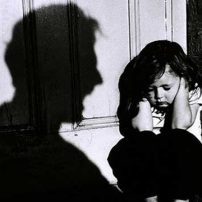
The protection of minors victims of abusive acts by the ECtHR
JUDGMENT
D.M.D. v. Romania 3/10/2017 (no. 23022/13)
SUMMARY
Child abuse by the father. Excessive duration and inefficiency of the research. Non-indemnification by the domestic courts of the ex-offender. Condemnation for degrading treatment (child abuse) and the right to a fair trial.
PROVISIONS
Article 3
Article 6
PRINCIPAL FACTS
The applicant, D.M.D., is a Romanian national who was born in 2001 and lives in Bucharest (Romania).
In February 2004 the applicant’s mother called a child protection hotline to report that her husband was abusing their son. Between March and July 2004 she also complained to the police on five occasions. After the fifth complaint, the authorities launched a criminal investigation. The prosecuting authorities heard evidence from six witnesses and examined psychological reports, which led to the indictment of the applicant’s father in December 2007.
The case was then examined at three levels of jurisdiction. The applicant’s father was acquitted in the first round of proceedings, the courts finding that his “occasionally inappropriate behaviour” towards his son did not constitute a crime. However, following a number of remittals of the case owing to shortcomings in the lower courts’ decisions, the Bucharest County Court ultimately convicted the father in April 2012 of physically and verbally abusing his child. It held that his behaviour was more severe than the type of “isolated or random” violence that could occur when parents were simply punishing their children.
The proceedings eventually ended in November 2012 following an appeal on points of law by both parties. The Bucharest Court of Appeal reaffirmed that the father had abused his child and gave him a three-year suspended prison sentence. The length of the sentence was reduced in order to take into account the excessive length of the proceedings. The applicant and the prosecutor complained that no compensation had been awarded. However, the Court of Appeal found that it did not have to examine the issue of damages as neither the applicant nor the prosecutor had requested compensation before the lower courts.
The applicant’s parents divorced in September 2004 and he has remained with his mother since.
THE DECISION OF THE COURT
Article 3 (ill-treatment)
The Court recalled that Member States should strive to expressly and comprehensively protect children’s dignity. In practice this requires an adequate legal framework affording protection to children against domestic violence, including effective deterrence against such serious breaches of personal integrity, reasonable steps to prevent ill-treatment of which the authorities have, or ought to have, knowledge, and effective official investigations where an individual raises an arguable claim of ill-treatment.
However, in the applicant’s case little or nothing was done following the complaint to the child protection authorities, after the first four criminal complaints to the police or in the three years and six months it took to investigate and indict the father. The overall length of the proceedings, eight years and four months, had been excessive and the blame for this could in no way be attributed to the applicant.
Secondly, there had been several shortcomings in the proceedings. While the courts had taken into account the excessive length of the proceedings when sentencing the father, they had failed to offer any comparable compensation to the applicant himself, despite his having also suffered the consequences of the extensive length of the case. Furthermore, the courts’ approach in this case to the issue of domestic abuse, apparently suggesting that “isolated and random” acts of violence could be tolerated within the family, was not compatible either with domestic law or with the Convention – which both prohibit ill-treatment, including corporal punishment. Indeed, any form of justification for ill-treating a child, including corporal punishment, undermined respect for children’s dignity.
Lastly, the applicant had received absolutely no compensation for the abuse.
The Court therefore concluded that the investigation into the allegations of abuse had been ineffective because it had lasted too long and been marred by serious shortcomings, in violation of Article 3. Given that finding, the Court considered that there was no need to give a separate ruling on the complaint under Article 6 § 1 about the excessive length of the proceedings.
Article 6 § 1 (failure to award compensation)
The Court noted that, according to the applicable law (Article 17 of the Code of Criminal Procedure), the courts were under an obligation to rule on the matter of compensation in a case where the victim was a minor and therefore had no legal capacity, even without a formal request from the victim. Given such unequivocal wording in the domestic law, the Court of Appeal should have examined on the merits the applicant’s complaint about the failure to award him compensation. Instead, it had done no more than observe that neither the applicant nor the prosecutor had requested compensation before the lower courts, thus failing to examine the role of the domestic courts or of the prosecutor in securing the applicant’s best interests. That had amounted to a denial of justice, in violation of Article 6 § 1.
Article 41 (just satisfaction)
The Court held, by four votes to three, that Romania was to pay the applicant 10,000 euros (EUR) in respect of non-pecuniary damage, EUR 1,326.69 for costs and expense incurred during the domestic proceedings and EUR 2,347.50 for costs and expenses incurred in the proceedings before the European Court of Human Rights.
Separate opinions
Judges De Gaetano, Pinto de Albuquerque and Motoc expressed a joint concurring opinion. Judges Yudkivska, Ranzoni and Bošnjak expressed a joint partly dissenting opinion. Judge Bošnjak also expressed a partially concurring opinion. These opinions are annexed to the judgment(echrcaselaw.com editing).


